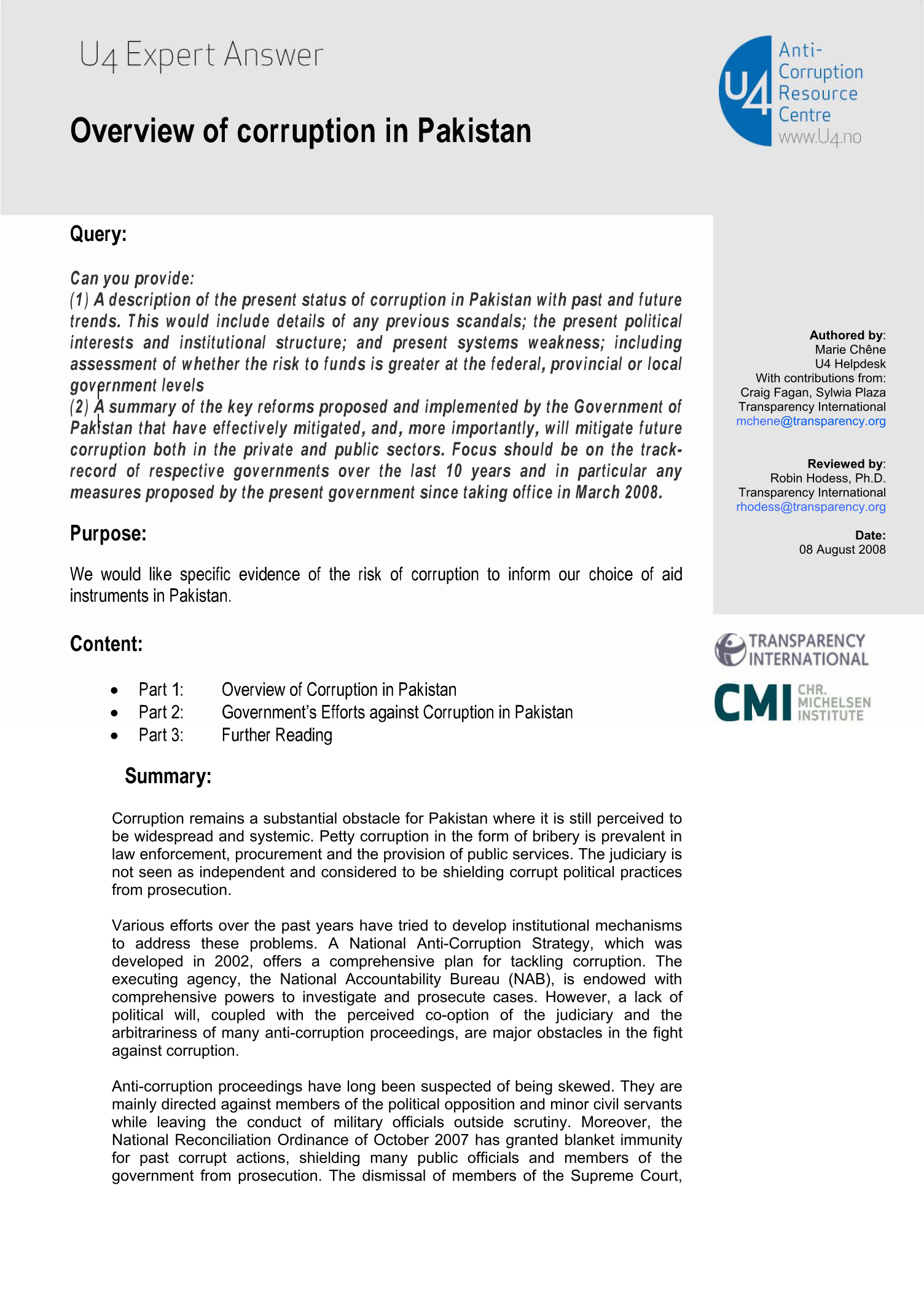U4 Helpdesk Answer
Overview of corruption in Pakistan
Corruption remains a substantial obstacle for Pakistan where it is still perceived to be widespread and systemic. Petty corruption in the form of bribery is prevalent in law enforcement, procurement and the provision of public services. The judiciary is not seen as independent and considered to be shielding corrupt political practices from prosecution. Various efforts over the past years have tried to develop institutional mechanisms to address these problems. A National Anti-Corruption Strategy, which was developed in 2002, offers a comprehensive plan for tackling corruption. The executing agency, the National Accountability Bureau (NAB), is endowed with comprehensive powers to investigate and prosecute cases. However, a lack of political will, coupled with the perceived co-option of the judiciary and the arbitrariness of many anti-corruption proceedings, are major obstacles.

Cite this publication
Chêne, M. 2008. Overview of corruption in Pakistan. Bergen: U4 Anti-Corruption Resource Centre, Chr. Michelsen Institute (U4 Helpdesk Answer Helpdesk)
Disclaimer
All views in this text are the author(s)’, and may differ from the U4 partner agencies’ policies.
This work is licenced under a Creative Commons Attribution-NonCommercial-NoDerivatives 4.0 International licence (CC BY-NC-ND 4.0)

